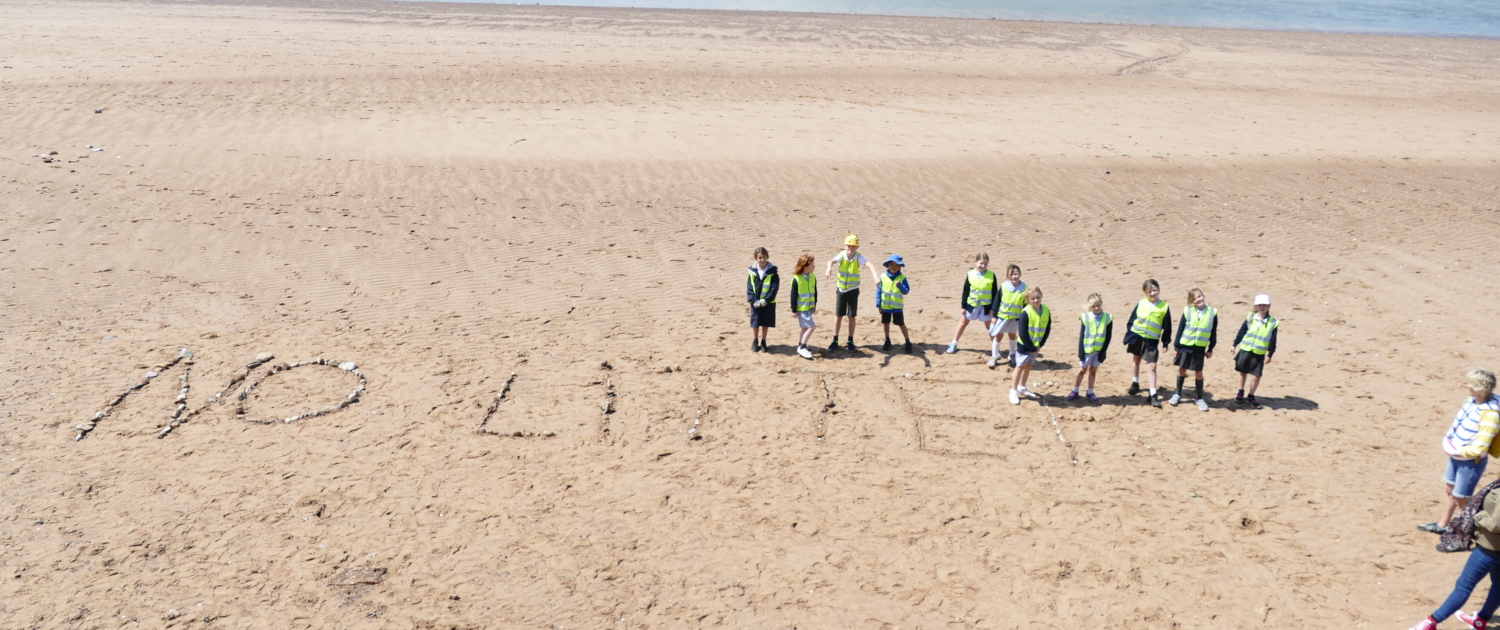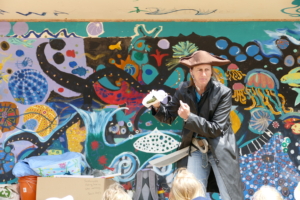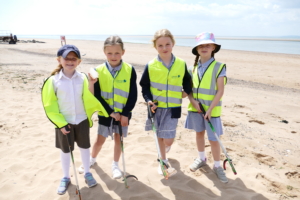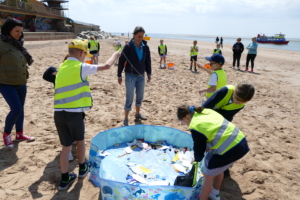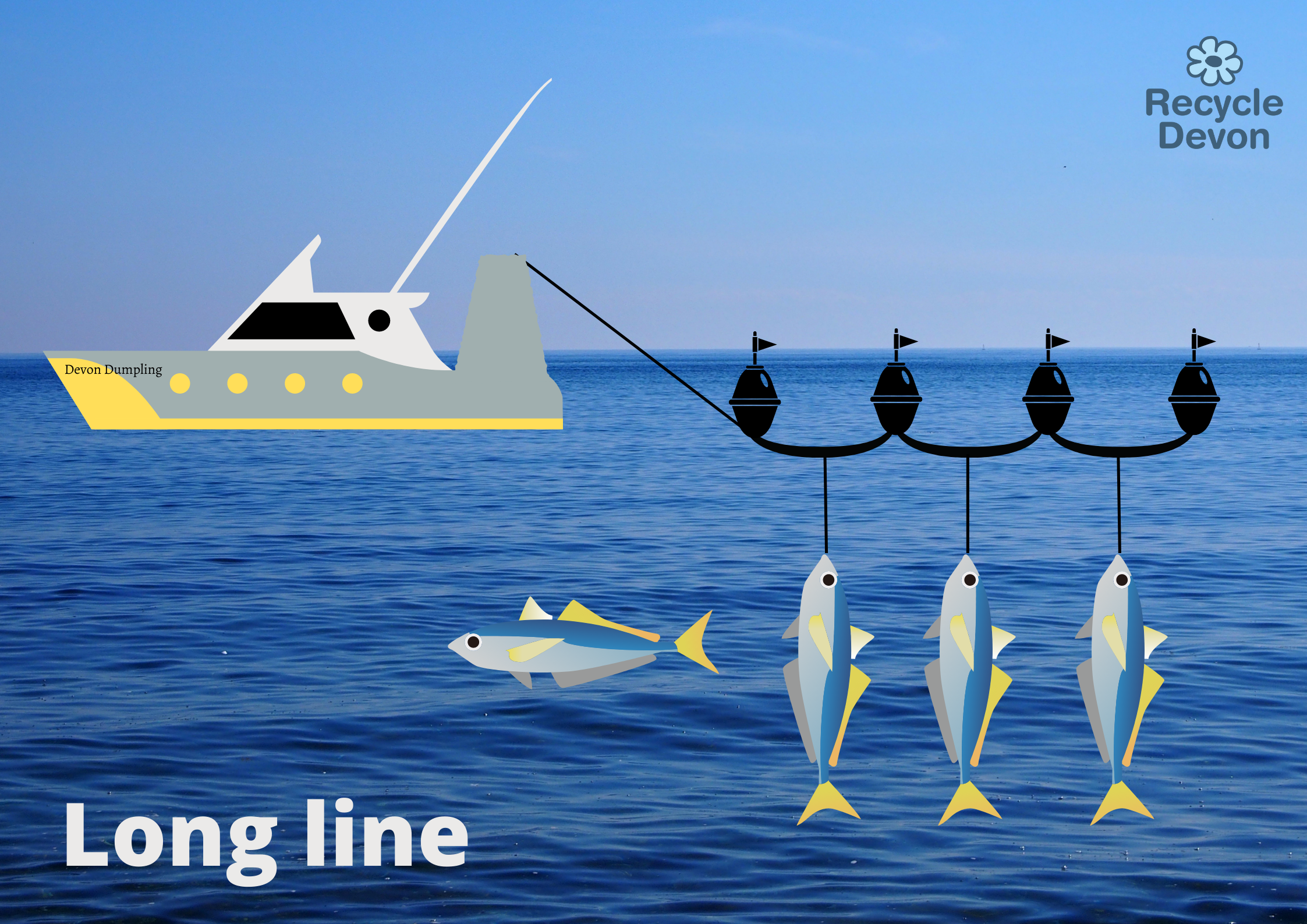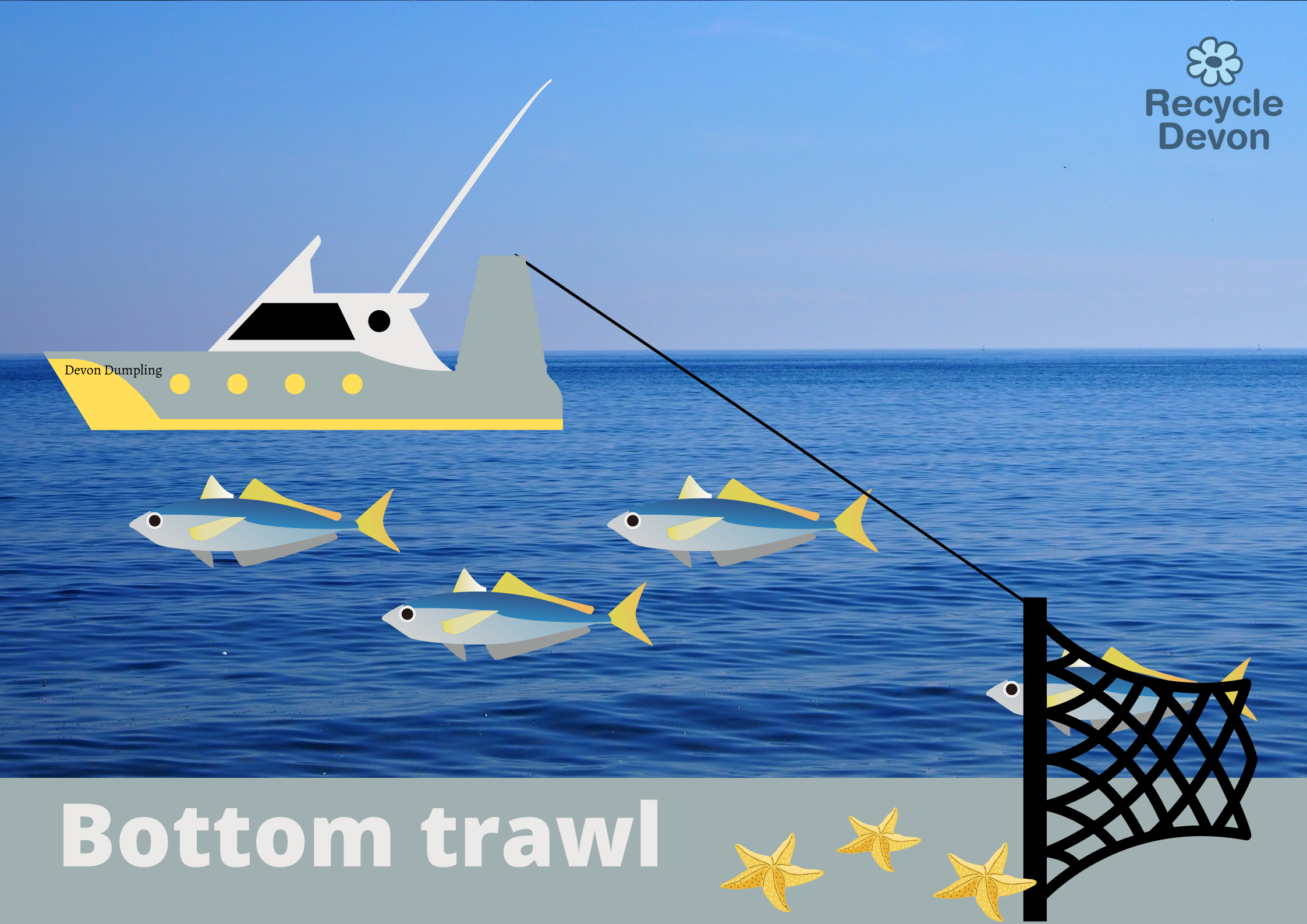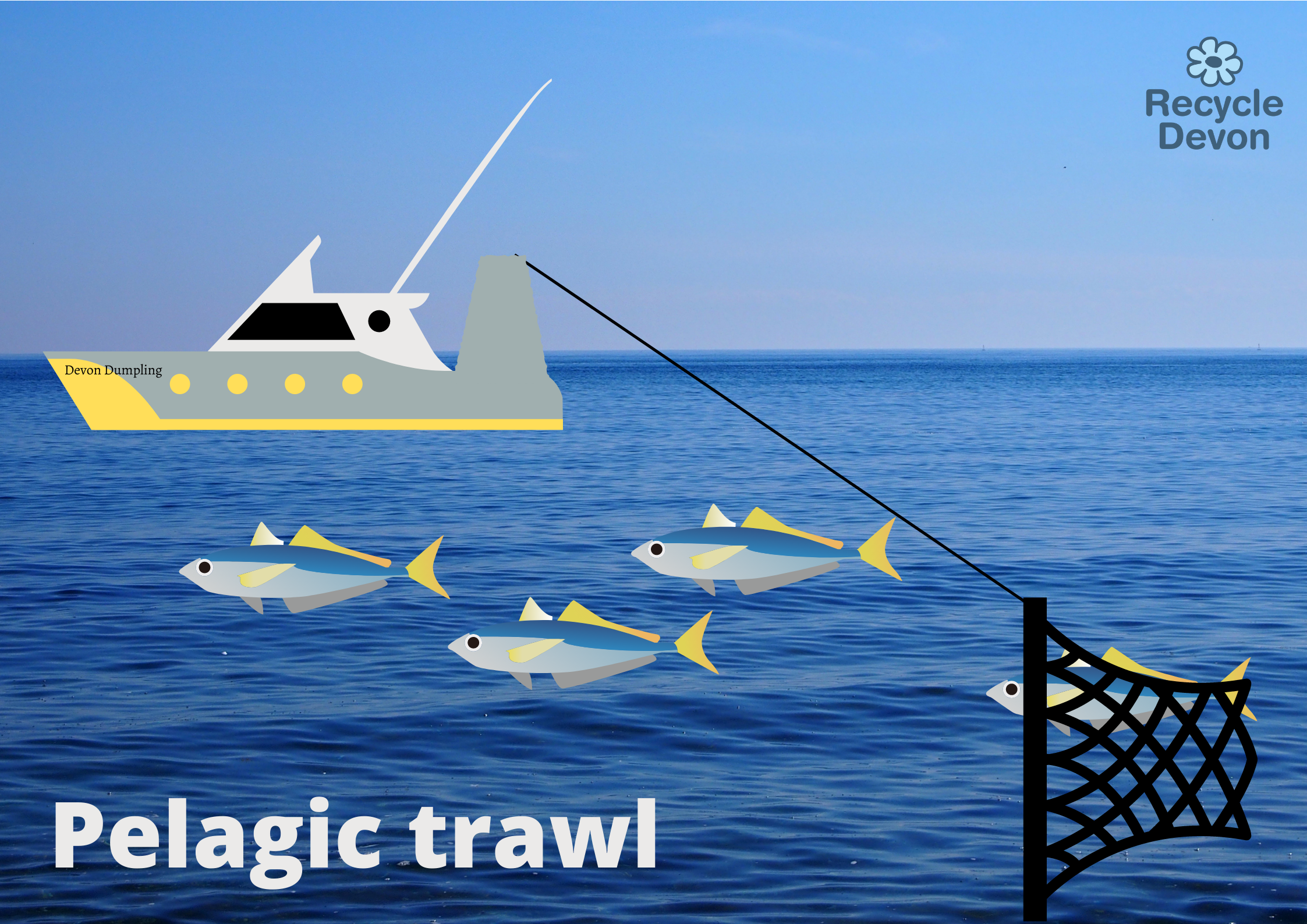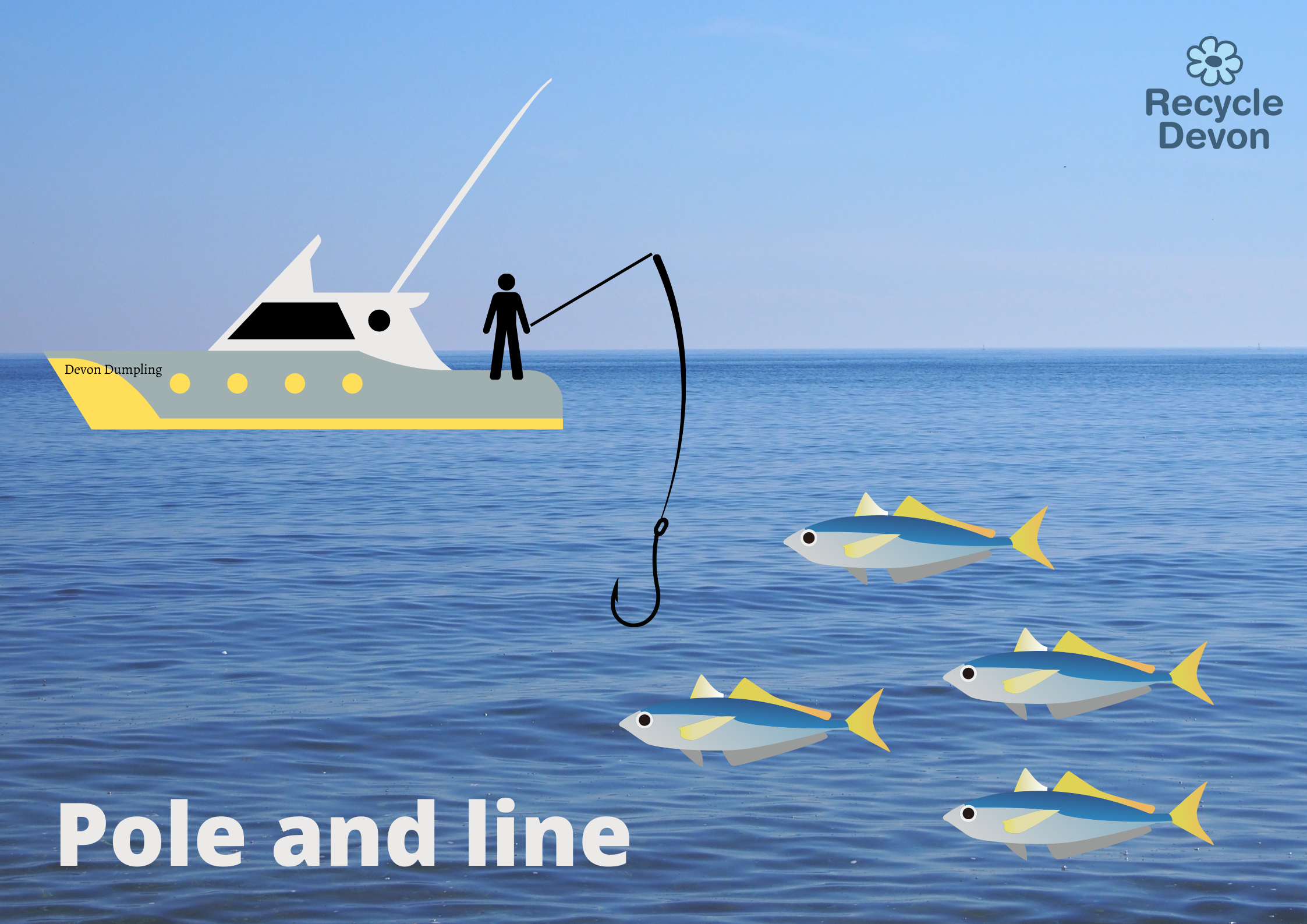Throughout June and July, Devon County Council and Resource Futures are sending their waste educators to the beach! The aim is to inform children about litter, pollution and sustainable fishing. There can be up to 90 children per beach day with 3 or 4 educators (plus their teachers), so it’s a very busy day. The activities are split into various sessions such as…
Plastic Pollution workshop
This workshop involves a discussion about the various types of waste found on beaches and the effects it has on animals (including us). Children also get to feel the different types of materials that affect sea creatures like string and plastic. Impactful facts and images are also quizzed. A shocking fact discussed is that Every minute, one garbage truck of plastic is dumped into our oceans. This has to stop | World Economic Forum (weforum.org)
After the children have found out about the effects of litter, they get to create a news report on a sea creature that has washed up on shore, a sea creature affected by pollution.
Check out a link to Litter Origins – Zone (recycledevon.org) for more info about ocean litter.
Waste Educator, Sally, quizzing children on plastic facts as a pirate.
Litter picking
For this workshop, a group is given high-vis vest, bin bags and litter pickers. An army of children then clean the beach safely. It’s a fun team-building activity that gets them running around. The children are often surprised as to how much litter they find. Beach litter is sometimes only seen when it’s looked for.
Children of Clyst St Mary primary school
Sustainable fishing game
This activity aims to teach about the dangers of overfishing and microplastics in fish. There are four groups, each with their fishing device. A fishing pole, a multi-fishing pole, a small net and a large net. Each represents a type of fishing, from Pole and Line to Bottom Trawling (see pictures below). The groups compete to get enough fish to feed their families. In the pool, there are fish with plastic contamination, endangered fish and fresh fish. The group with the most fresh fish without overfishing wins. Most of the time the groups with the fishing poles win (sometimes the trawler net groups figure out they shouldn’t overfish, so they win!). This hones the message that overfishing is damaging to the environment.
After the children have finished the sustainable game, they discuss what they can do to help stop overfishing, like looking for the certified sustainable food MSC label on packaging.
The dangers of beach litter is discussed too. Check out this interesting article on Nurdles – Zone (recycledevon.org), something we often find in the fish we eat!
All in all it’s a grand day with lots of fun and learning. For up-to-date events and information sign up for our Sustainability Bulletin – Zone (recycledevon.org)
The sustainable fishing game

